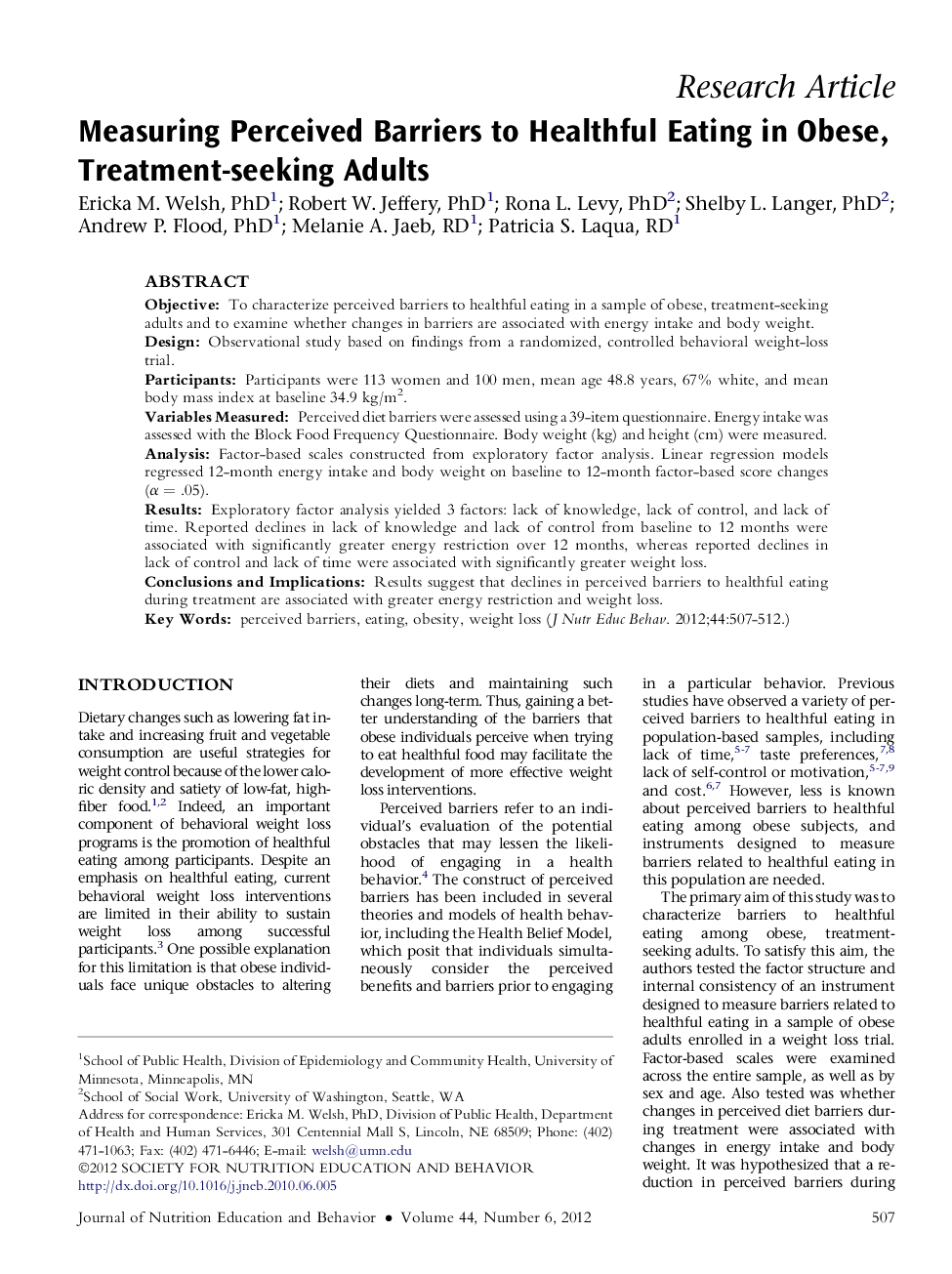| Article ID | Journal | Published Year | Pages | File Type |
|---|---|---|---|---|
| 362178 | Journal of Nutrition Education and Behavior | 2012 | 6 Pages |
ObjectiveTo characterize perceived barriers to healthful eating in a sample of obese, treatment-seeking adults and to examine whether changes in barriers are associated with energy intake and body weight.DesignObservational study based on findings from a randomized, controlled behavioral weight-loss trial.ParticipantsParticipants were 113 women and 100 men, mean age 48.8 years, 67% white, and mean body mass index at baseline 34.9 kg/m2.Variables MeasuredPerceived diet barriers were assessed using a 39-item questionnaire. Energy intake was assessed with the Block Food Frequency Questionnaire. Body weight (kg) and height (cm) were measured.AnalysisFactor-based scales constructed from exploratory factor analysis. Linear regression models regressed 12-month energy intake and body weight on baseline to 12-month factor-based score changes (α = .05).ResultsExploratory factor analysis yielded 3 factors: lack of knowledge, lack of control, and lack of time. Reported declines in lack of knowledge and lack of control from baseline to 12 months were associated with significantly greater energy restriction over 12 months, whereas reported declines in lack of control and lack of time were associated with significantly greater weight loss.Conclusions and ImplicationsResults suggest that declines in perceived barriers to healthful eating during treatment are associated with greater energy restriction and weight loss.
